Your Cart is Empty
Free shipping on Orders $79+
Free shipping on Orders $79+
Explore

7 Common Nutrient Deficiencies That Lead to Health Problems
October 22, 2020 7 min read
We all know the many benefits that come with eating a balanced diet, but that doesn't mean we all stick to a balanced diet.
Despite our best efforts, many people around the world suffer from nutrient deficiencies. Failing to get all of the nutrients our bodies need can result in a number of health issues, like fatigue, weight problems, digestive problems, diabetes, acne, high blood pressure, night blindness, and even osteoporosis.
If you're experiencing any of these symptoms but haven't been able to determine the source of the problem, you could be suffering from a nutrient deficiency.
Luckily, detecting and preventing these deficiencies is entirely possible by making some simple adjustments to your diet, though dietary supplements and a conversation with your doctor or nutritionist are highly recommended.
Here are the seven most common nutrient deficiencies, as well as foods you can add to your diet to correct each one.
What Is a Nutrient Deficiency?
A nutrient deficiency is when your body isn't getting the proper amount of nutrients it needs for development, growth, and maintenance. Many people may be living with nutrient deficiencies without even realizing it, while others may have come to accept symptoms of their deficiencies as "normal" for them.
Do I Have a Nutrient Deficiency?
There's no surefire way to tell if you have a nutrient deficiency unless you get tested for it. It is estimated that roughly10% of Americans have nutrient deficiencies, though they are more common for certain groups. Younger women, older adults, children, vegans, and vegetarians have the highest risk of being nutrient deficient.
You're also more likely to experience a nutrient deficiency if you maintain a poor diet, consume a lot of processed foods, or do not take any supplements.
The Most Common Nutrient Deficiencies and How to Solve Them
Nutrient deficiencies sound scary, but they’re easy enough to fix. Here’s a breakdown of each one as well as what you can do to solve and prevent them!
1. Iron Deficiency
When you hear the word “iron,” you probably think “metal” and not “essential micronutrient.” While too much iron in the body can actually set off metal detectors, too little of it is also problematic.
Iron is an important part of your red blood cells because it tethers to hemoglobin and delivers oxygen to your body's cells.
Dietary iron comes in two types: heme iron and non-heme iron. Heme iron is absorbed very easily by the body and can only be found in meats (like red meat). Non-heme iron, on the other hand, is found in foods that come from both plants and animals. However, non-heme iron isn't as easily absorbed by the body, which is why it’s best taken in foods rich in vitamin C.
Iron deficiency is perhaps the most common nutrient deficiency across the world and can be particularly common in women. This is because about 30% of women become iron deficient during menstruation and over 40% of women can be deficient during pregnancy.
What's so bad about this? Iron deficiency typically causes fatigue, weakness, impaired brain function, and a weakened immune system.
Obviously, meat - particularly red meat - is a great source of heme iron. However, we know everyone doesn't eat meat. The best dietary sources of non-heme iron are:
- Beets:not only are they delicious roasted, raw or steamed,beet juice concentrates the iron content even more.
- Beans: Just a half-cup of kidney beans will give you 33% of the iron you need on a daily basis. You can find kidney bean sprouts in ourPineapple Chia Cleanse!
- Seeds: Squash, pumpkin, and sesame seeds are great sources of non-heme iron. Just one ounce of roasted pumpkin seeds gives you 11% of your daily iron needs.
- Leafy Greens: Particularly dark greens like kale, broccoli, and spinach.
2. Vitamin D Deficiency
Vitamin D is important to your body's function because it helps tell cells when to turn certain genes on or off. You probably know that sunlight is a great source of vitamin D, but plenty of people simply don't get enough of it.
Over 40% of Americans are vitamin D deficient, especially older adults and those with darker skin.
Vitamin D deficiency isn't likely to give you symptoms overnight; they typically develop over the course of years. However, this deficiency can result in bone loss, muscle weakness, and a higher risk of fractures. Children who are vitamin D deficient may experience delayed growth or soft bones.
Most foods don't contain a significant amount of vitamin D, but these three are good sources:
- Fatty Fish: Salmon is a popular choice because just 3 ounces provides 75% of the vitamin D you need on a daily basis.
- Egg Yolks: You can get 7% of your daily need from a single egg yolk.
- Vegan Vanilla Proteini:OurVegan Vanilla Proteinicontains flaxseed, which is a great source of vitamin D (among other things).
3. Calcium Deficiency
Calcium helps mineralize bones and teeth and is also essential to bone maintenance. Plus, it is a signaling molecule, which your heart, nerves, and muscles need to function.
Excess calcium is stored in your bones, but your bones release the calcium when you don't get enough of it in your diet. The most common symptom of a calcium deficiency is osteoporosis.
It's generally agreed that getting calcium from foods is more beneficial than taking supplements. Here are three great dietary sources of calcium:
- Dairy Products: You're probably already aware of this one, but just one cup of milk gives you 35% of the calcium your body needs each day.
- Dark Greens: Vegetables, of course! Spinach, kale, and broccoli are great sources of calcium.
- Boned Fish: If you can stomach sardines, you'll see that just one can give you almost half of the calcium you need each day.
- Vegan Vanilla Proteini:OurVegan Vanilla Proteinicontains flaxseed, which is a great source of calcium (among other things).
4. Magnesium Deficiency
Magnesium is very important for teeth and bone structure, but it's also needed for over 300 enzyme reactions.
Low levels of magnesium are often associated with a number of conditions, like heart disease, type 2 diabetes, osteoporosis, and metabolic syndrome.
Symptoms of more severe cases of magnesium deficiency are muscle cramps, abnormal heart rhythm, fatigue, migraines, and restless leg syndrome.
Here are four ways to ensure you're getting enough magnesium:
- Nuts:Just 20 almonds is enough to give you 17% of the magnesium you need.
- Dark Chocolate: Though it may be a bit too rich for some people, just one ounce gives you 15% of the magnesium you need.
- Whole Grains: A single cup of oats gives you 75% of the magnesium you need.
- Leafy Greens: Raw spinach is another great source of magnesium.
5. Vitamin B12 Deficiency
Vitamin B12 is necessary for blood formation, nerve function, and brain function. Yeah, you could say it's important. Even though every cell in your body needs B12, your body cannot produce it on its own.
Since B12 is most commonly found in animal foods, the vast majority of vegans and vegetarians are deficient in this nutrient. Symptoms of vitamin B12 deficiency are impaired brain function and elevated homocysteine levels.
Here's how you can up your B12 levels:
- Shellfish:Oysters and clams are incredibly rich in vitamin B12. Just three ounces of clams give you 14 times as much B12 as you need each day.
- Red Meat:Six ounces of beefsteak will give you 150% of the B12 you need each day.
- Eggs: Eggs aren't as good as the above two B12 sources, but you can still get 6% of what you need from a single egg.
6. Vitamin A Deficiency
Vitamin A is essential for healthy skin, bones, teeth, and cell membranes. It is also incredibly important for your vision because it produces essential eye pigments.
If you eat a typical Western diet, you're likely getting enough vitamin A and shouldn't have to worry about being deficient. However, being deficient in vitamin A can lead to some severe health issues.
Not only can it cause temporary and permanent eye damage, but this deficiency is also the leading cause of blindness. Vitamin A deficiency has also been known to suppress your immune system.
Make sure you're getting enough vitamin A:
- Sweet Potatoes: A single sweet potato has 150% of the vitamin A you need on a day to day basis.
- Carrots: One large carrot will give you 75% of the vitamin A you need each day.
- Leafy Greens:Spinach is another great source of vitamin A, with a single ounce offering 18% of what you need each day.
7. Iodine Deficiency
Iodine is very important to thyroid function and the creation of thyroid hormones. Thyroid hormones are needed to stimulate a variety of body processes, like growth and brain development, and are also helpful for bone maintenance and regulating your metabolism.
Iodine deficiency is incredibly common, affecting about 33% of people in the world. An iodine deficiency can commonly result in an enlarged thyroid gland (known as a goiter), but it can also result in weight gain, shortness of breath, and an increased heart rate.
Here's how to make sure you're getting enough iodine in your diet:
- Seaweed: A single gram of kelp will give you over 400% of the iodine your body needs on a daily basis.
- Fish: Baked cod is a great iodine source, with three ounces giving you two-thirds of what you need each day.
- Yogurt: A single cup of plain yogurt will give you half of the iodine you need each day.
For more SMART lifestyle tips like this, visitwww.smartpressedjuice.com and follow us onInstagram andTwitter, or like us onFacebook. You can also visit ourAmazon store to stock up on our delicious juices.
Statements made on this website have not been evaluated by the U.S. Food and Drug Administration. Information provided by this website or this company is not a substitute for direct, individual medical treatment or advice. It is the responsibility of you and your healthcare providers to make all decisions regarding your health. We recommend that you consult with your healthcare providers regarding the diagnosis and treatment of any disease or condition. Products sold on this website are not intended to diagnose, treat, cure, or prevent any disease.
{"themeColor":"#574CD5","iconColor":"#574CD5","showLogo":true,"topBottomPosition":10,"rightLeftPosition":10,"iconSize":"small","iconCustomSize":64,"position":"bottom-left"}

